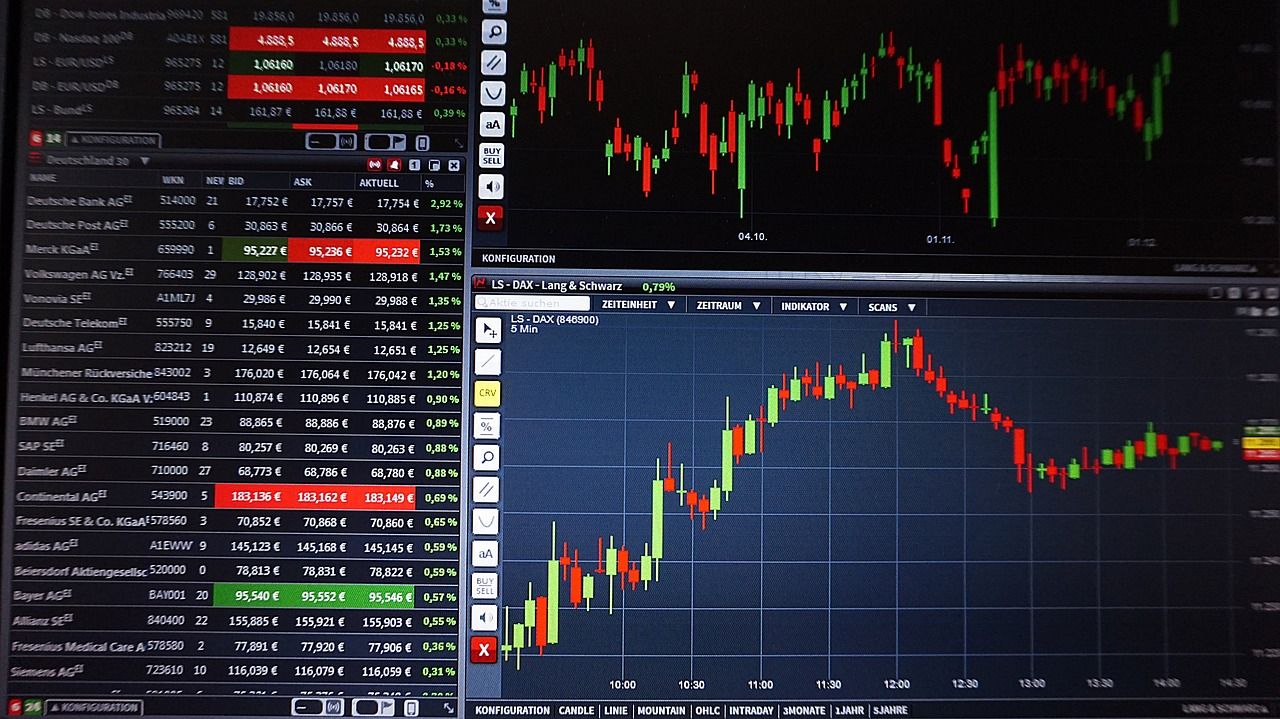Altcoin season is typically characterized by a surge in the prices of smaller digital currencies, known as altcoins, that are not BTC.
When it comes to the crypto market, one thing is certain: When bitcoin (BTC) prices rise, altcoins follow suit. This phenomenon is known as ‘altcoin season’ and has been observed since BTC debuted in 2009.
As BTC prices rise, investors diversify their portfolios with altcoins, creating a wave of buying activity that drives up their prices. Historically, the altcoin season has always followed an increase in BTC prices.
Hence, the current surging market begs the question – is this an altcoin season? Let’s use some historical metrics and references to make more sense.
Trading volume and its intrinsic relation with price action
Investors flock to lesser-known cryptocurrencies during altcoin season for quick and hefty returns. This influx of investors causes a surge in trading volume as more people buy and sell altcoins hoping to make a windfall.
The most recent example of an altcoin season occurred when the total cryptocurrency market cap surged from $350 billion in late 2020 to nearly $3 trillion in 2021. During that time, the top 10 coins by market capitalization saw their trading volume increase by over 500%.
The surge in trading volume during the altcoin season is not new. In 2017, the total market cap of cryptocurrencies surged from $17.7 billion in January to a high of $813 billion in December. During that time, the trading volume of the top 10 coins by market cap increased by more than 700%.
As BTC’s price has been steadily increasing, the trading volumes of the cryptocurrency have been telling a different story.
According to the chart above, the trading volumes are nowhere near the previous levels when the past bull runs occurred. This suggests that the current rise in the price has probably resulted from whale manipulation, speculation, or a mix of both.
Developer activity remains flat
If there’s one bellwether for the bull market fortunes of the altcoin sector, it’s development activity. While not every altcoin needs active development, a surge in development on most coins is a positive sign for the entire sector.
After all, development leads to bug fixes, feature updates, and even completely new projects – all of which can lead to altcoins increasing in value and making their investors a tidy profit. A key litmus test of a coin’s development activity is the number of developers involved in a given coin. The more developers actively engaged with a coin, the more likely it is to experience a bull market.
So it’s a good idea to track the developers a coin has and whether they’re engaging in new projects and updates.
On the other hand, if a coin has gone quiet with little development activity, then that may be a sign that there won’t be any upside. Recently, an interesting development has been observed in the GitHub development activity, which provides an overview of a project’s progress on GitHub over some time.
BTC commit history appears to be stagnating, with no indication of a rise in activity, suggesting slow growth in the project.
This is not exclusive to BTC, with altcoins such as solana (SOL) also showing similar trends. Despite several announcements throughout 2022 aiming to increase scalability and speed, the commit history remains largely unchanged. This could be indicative of a lack of progress toward the stated goals.
Analyzing these development metrics in the context of the current rise in crypto prices, one can reasonably assume that the surge is mainly a product of speculation instead of fundamental factors. House of cards waiting to fall?
BTC dominance rate is holding still
BTC dominance is a metric that measures the market capitalization of BTC compared to the total market capitalization of all cryptocurrencies on the market.
When BTC dominance is high, it means BTC is leading the cryptocurrency market at that time. In contrast, when BTC dominance is low, it usually means that the altcoin market is gaining momentum, and the price of altcoins is increasing.
It’s a bit like a tug-of-war: when one side is strong, the other is weak. Similarly, altcoins are usually weak when BTC is strong, and when BTC is weak, altcoins are usually strong.
BTC’s dominance rate has been a major factor in the rise of altcoins. Following the previous bull runs of 2018 and 2021, altcoins saw a surge of momentum due to the decrease in BTC’s dominance rate.
However, since then, that rate has remained stagnant, meaning that if we wish to experience an altcoin season, this metric needs to change soon.
Flat altcoin dominance implies that the prices and activity for altcoins will remain stagnant, suggesting that BTC has yet to loosen its grip on the crypto market.
The road ahead: become a savvy investor
Cryptocurrency investors are celebrating a surge in the global market, but it may be too soon to call it the start of an ‘altcoin season.’ BTC and ETH prices have skyrocketed by over 40% since the start of 2023, but many altcoins are still struggling to grow.
Although trading volume across the entire market is up, most are concentrated on BTC and ETH, with altcoins accounting for only a small portion. Investors should remember that a correction could follow this surge and remain cautious when trading cryptocurrency.
Always remember, it’s easy to get caught up in the hype when a coin starts shooting up in price, but it’s important to remember that not every rally is a bull market.
It’s not uncommon for a coin to have a huge rally, only to crash back down to its original price soon after. This is known as a pump and dump, where the coin’s price is artificially inflated and then dropped to make a quick profit.
It’s important to do your research and make sure you have a good understanding of the fundamentals before investing. Don’t just buy into a coin because it’s going up in price; make sure you understand how it works and how it’s being used in the real world.
Another thing to be wary of is the FOMO (fear of missing out) factor. Remember, it’s not always wise to follow the herd. It’s important to remember that not every rally is a bull market.
Read More: crypto.news









 Bitcoin
Bitcoin  Ethereum
Ethereum  Tether
Tether  XRP
XRP  Solana
Solana  Dogecoin
Dogecoin  USDC
USDC  Cardano
Cardano  Lido Staked Ether
Lido Staked Ether  TRON
TRON  Sui
Sui  Avalanche
Avalanche  Wrapped stETH
Wrapped stETH  Toncoin
Toncoin  Chainlink
Chainlink  Shiba Inu
Shiba Inu  Wrapped Bitcoin
Wrapped Bitcoin  Stellar
Stellar  Hedera
Hedera  Polkadot
Polkadot  WETH
WETH  Bitcoin Cash
Bitcoin Cash  LEO Token
LEO Token  Uniswap
Uniswap  Litecoin
Litecoin  Pepe
Pepe  Hyperliquid
Hyperliquid  Wrapped eETH
Wrapped eETH  NEAR Protocol
NEAR Protocol  USDS
USDS  Ethena USDe
Ethena USDe  Aptos
Aptos  Internet Computer
Internet Computer  Aave
Aave  Mantle
Mantle  Cronos
Cronos  Ethereum Classic
Ethereum Classic  POL (ex-MATIC)
POL (ex-MATIC)  MANTRA
MANTRA  Render
Render  Monero
Monero  Bittensor
Bittensor  Artificial Superintelligence Alliance
Artificial Superintelligence Alliance  Dai
Dai  Tokenize Xchange
Tokenize Xchange  Filecoin
Filecoin  Arbitrum
Arbitrum